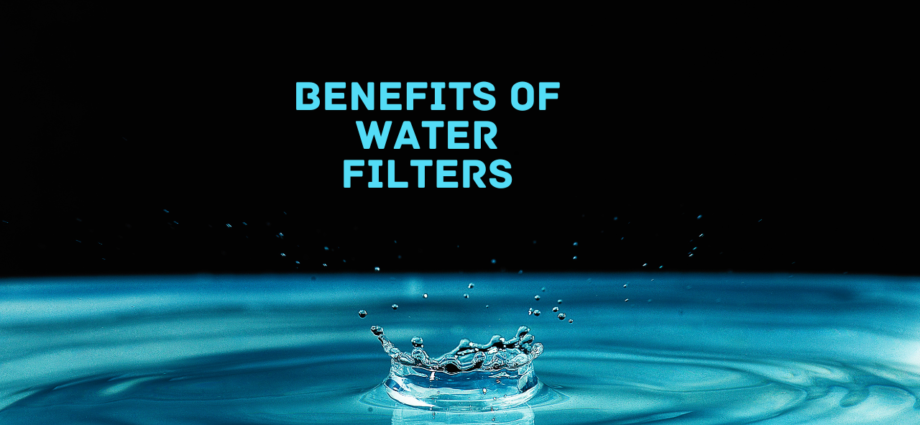Water is essential to life, but not all water is created equal. In many parts of the world, tap water contains impurities such as chemicals, heavy metals, and bacteria that can pose health risks. A water filter is an effective way to purify tap water, removing these contaminants to provide clean, safe drinking water.
The Importance of Clean Drinking Water
Access to clean drinking water is a basic human right, but for many, it is not a reality. According to the World Health Organization, 2 billion people lack access to safe drinking water. The lack of access to clean water can lead to a variety of health problems, including diarrhea, cholera, and other waterborne diseases.
Water filters play an important role in improving access to clean water. They remove impurities from tap water, making it safer to drink. This is especially important for families with young children, pregnant women, and people with weakened immune systems who are more vulnerable to waterborne diseases.
Different Types of Water Filters
There are several types of water filters available, each with its own unique benefits and drawbacks. The most common types of water filters include activated carbon filters, reverse osmosis systems, and ultraviolet filters.
Activated Carbon Filters
Activated carbon filters are the most basic type of water filter. They work by removing impurities from the water through a process called adsorption, which attracts and traps contaminants in the filter. Activated carbon filters are effective in removing chlorine, volatile organic compounds (VOCs), and unpleasant odors and tastes from tap water.
Reverse Osmosis Systems
Reverse osmosis systems are a more advanced type of water filter. They work by applying pressure to water, forcing it through a semi-permeable membrane that removes impurities. Reverse osmosis systems are effective in removing a wide range of contaminants, including heavy metals, salts, and chemicals.
Ultraviolet Filters
Ultraviolet filters use UV light to kill bacteria and other microorganisms in tap water. This type of filter is particularly effective in removing waterborne pathogens, making it an ideal choice for families with young children or people with weakened immune systems.
The Benefits of Installing a Water Filter
Installing a water filter has numerous benefits, both for your health and the environment.
Improving Your Health
By removing impurities from tap water, water filters help to improve your health. This is especially important for families with young children, pregnant women, and people with weakened immune systems who are more vulnerable to waterborne diseases.
Protecting the Environment
Water filters also help to protect the environment by reducing the amount of plastic waste produced. Many people buy bottled water, which contributes to the growing problem of plastic waste. By filtering tap water, you can reduce the need for bottled water, reducing the amount of plastic waste produced.
Cost-Effective Solution
Installing a water filter is a cost-effective solution compared to buying bottled water. In the long run, a water filter can save you money by reducing the need for bottled water.
Safe Drinking Water
One of the most significant benefits of water filters is that they can provide you with safe drinking water. As we have already mentioned, tap water can contain harmful contaminants that can cause serious health problems. By installing a water filter in your home, you can eliminate these contaminants and ensure that you are drinking clean and safe water.
Water filters use a variety of technologies, including activated carbon, reverse osmosis, and ultrafiltration, to remove contaminants from tap water. These technologies are highly effective and can remove a wide range of contaminants, including bacteria, chemicals, heavy metals, and other impurities.
Improved Taste and Odor
In addition to providing safe drinking water, water filters can also improve the taste and odor of your tap water. Tap water can have a strong odor and taste due to the presence of chlorine and other chemicals used to treat it. By installing a water filter, you can eliminate these unpleasant tastes and odors and enjoy a fresh, clean taste.
Cost-Effective
Another benefit of water filters is that they are cost-effective. When compared to the cost of buying bottled water, a water filter is a much more affordable option. Not only does it save you money in the long run, but it also reduces waste by eliminating the need for disposable plastic bottles.
Easy to Install and Maintain
Water filters are easy to install and maintain, making them a convenient option for busy households. They come in a variety of sizes and designs, and can be easily installed under the sink, on the countertop, or even in a pitcher form. Most water filters are designed to be easy to use and maintain, with simple cartridge replacements and easy-to-follow instructions.
Better for the Environment
Finally, water filters are better for the environment than bottled water. Plastic water bottles are a significant source of plastic waste, and they can take hundreds of years to decompose. By installing a water filter, you can reduce your carbon footprint and help to protect the environment.
In conclusion, the benefits of water filters are clear. Not only do they provide safe drinking water, but they also improve the taste and odor, are cost-effective, easy to install and maintain, and better for the environment. If you are looking to improve the quality of your tap water, we highly recommend installing a water filter in your home.

